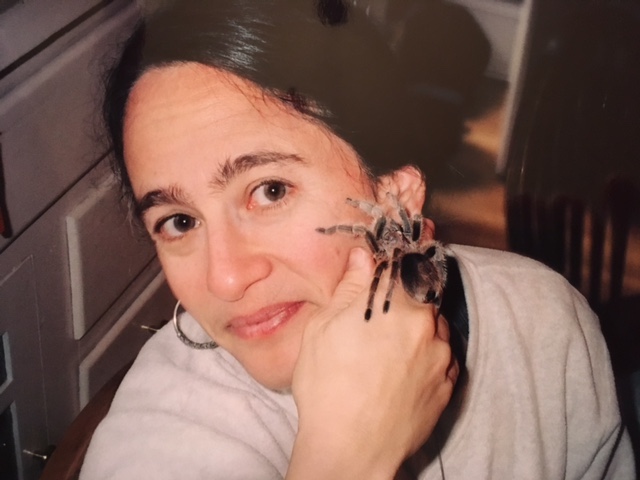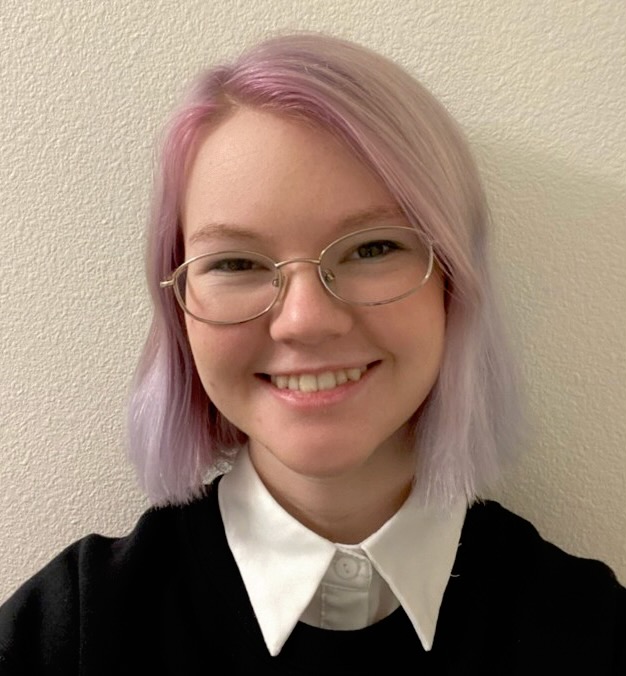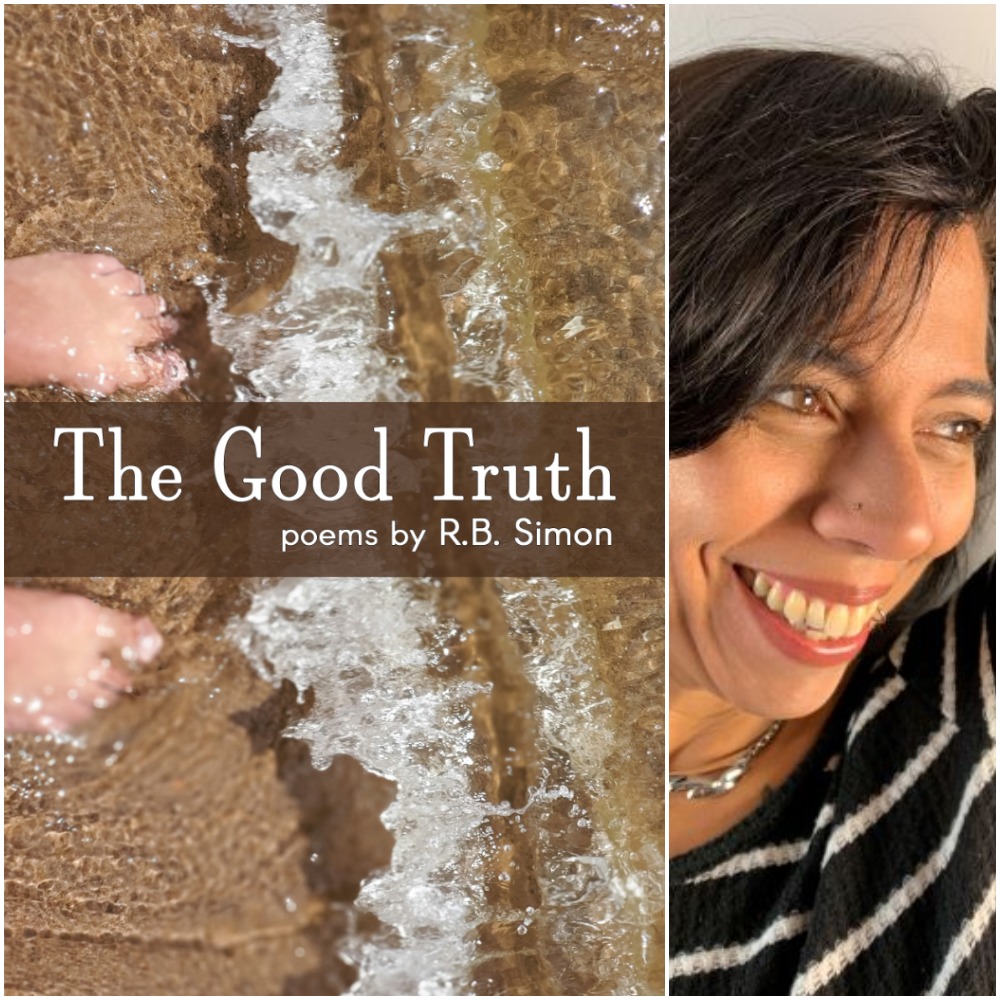National Poetry Month Contest Winners 2023
National Poetry Month Contest Winner 2023
Sujash PurnaPicking a poem from so many poems shared during National Poetry Month is always so difficult—how to set something experimental and free-versed against a tight form and judge one “better” when they reach for such different things?
While selecting a group of poems was no easier this year, the pleasures of reading were multiplied by being able to engage with a group of poems from each poet: to trace their voices through several poems, see how the notion of cycle translated from one to the next, how a subject could be visited across forms (sometimes turned inside out) or explored in concentric layers of complexity. Thank you for sharing your work—you turned me inside out, made me look again and again at what you were pointing to: be it a hummingbird, or a spare portrait in words, or the tangled mythologies of culture complicated by list forms.
For the winning selection, Sujash Purna’s poems “You Poor” begin with bludgeon lines, tender lines, sequestered on a page of negative space. Of the four poems, the variety in forms move from that spareness to a discursive voice-driven plea where the line endings deliver with a power that insists on being read aloud. The repetition of “your” and the breaking of “your” fragment not only the imperative to speak, but the self who speaks. In the final poem, the strategies of the first three coalesce: spareness, space, repetition, and concrete detail to connect the earlier poems in the cycle to each other, and to connect more fully to the reader.
Other noteworthy poets sharing their poem groupings include:
Ellie Lamothe’s “A Funeral in March,” “If We’re Honest,” and “Litany”
J.F. Merifield’s “Portraits”
Devon Balwit’s “Notes on Thomas Mann’s Joseph and His Brothers [II-V]”
—C. Kubasta, Editor, BMP Voices Poetry Month
Winner
“You Poor” Cycle by Sujash Purna
1.
.
.
.
.
I’m never going to see my mom again
…………………………………………………………………………..I am too poor to do that
2.
.
People in Missouri
don’t know who
I am anymore
.
.
.
.
People in Dhaka
don’t know who
I am anymore
.
.
People where I
am now
.
don’t
.
want to know
There Must Be Something Wrong
.
Visually nothing is aesthetic
It’s the lens they put on you
And tell you that this is how
You should look at this thing
That will neither make you
Happy nor circumvent your
Danger unless you tell your
-self yourself yourself your
Self to believe in the story
That they built based on
Your struggles, based on
Your sacrifices, based on
Your absences from your
Loved ones. Even the
Word love has become
Corrupt. It’s how they
Want you to feel. Not
How you feel. Because
If you feel that way
There must be something
Wrong. There must be
Something wrong. There
Must be something wrong.
Inductive Reasoning for a Family
.
glycerine drops
.
psoriasis-looking spots
.
your hair
a harsh sun
this master’s degree minimum wage job
that phd holder adjunct gig
two kids
two parents
their
health care
who cares?
you do
yours?
who cares?
you’re on your own now
you’re on your own now
you’re on your own now
You Poor III
.
I don’t write about flowers and lovers anymore
I write about shit that went out of control
Not the white people Babylon
Or American Hustle kind of coke-infused
Out of control
.
I write about being in a place
Where nobody wants you
Paycheck-to-paycheck immigrant
Renewal-to-renewal immigrant
Paying-double-the-tax immigrant
Taking-half-the-benefits
Taking nothing because
I should be already
Thankful
Immigrant
Short List
“A Funeral in March,” “If We’re Honest,” and “Litany” by Ellie Lamothe
A Funeral in March
.
I belong to the cold bones of winter.
Bare-skinned, barren, and remembering
the sound of your laugh like a funeral bell.
The sound of the boreal wind
whispering through the pines,
a wisdom for our children and their children,
and the ones they will love
without knowing why.
The gentle grief of living one evening to the next,
exchanging one ending for another.
I want to leave my brittle body behind,
become lost in the brume,
a spectre collecting light
and sadnesses leftover from years before.
Still, I am willing to endure.
I am willing to endure.
If We’re Honest
.
it’s a miracle that we come together at all,
that romance
is ever more than a formality
between two unreliable narrators of their own suffering.
We became accustomed to the taste of saltwater,
learned to perform that ritual
of kind pittances,
found a peculiar lightness
in clinging to the soft things.
My body, clumsy and pitted,
lingering in the cold sweat of your body.
Several vital organs missing
between the two of us.
You tell me your sadnesses in a voice
so sweet and perplexing,
I almost forget hunger
and the way it blooms
violet like a bruise along my jaw.
I almost forget to cherish
the way your throat opens up when you laugh.
Now everything we do is imaginary.
And I fear our love, too,
is just in our heads.
So I touch you to make it real,
and slowly,
to untangle the solemn etymology of desire,
and the terrible things
we endure out of loneliness
The terrible things we do to the people
we are trying to love.
You peel my clothes off in the dark room
and I let you.
But touching me becomes an unnatural thing
with our bones bleached.
The ceremonial undoing,
by some despondent architect of quiet endings
Litany
.
I am sitting cross legged on a pier,
bargaining with the stillness of the morning.
Having no one to mourn
my body as it acquiesces,
surrenders memory (even the dear ones),
becomes the fog hanging low over the lake.
I am thinking about things too bleak
for the morning
and the delicate charms of its first light.
The temporality of bliss
and the reasons I have been unkind.
I am learning there is nothing constant
but the wintering
and warming of desires,
how even ordinary wounds can fester.
I am learning about curiosity
and too, about hunger,
from the ruby-throated hummingbird
and her relentless need to move toward something.
A tender certainty.
The medicinal commonalities
between sugar water and song.
You don’t sing for me
and I begin to keep some of my sadnesses to myself.
Even then, I don’t pretend to love silence
the way you do.
So this is how it goes.
We suffer,
and we owe,
and we rejoice
in the delicate light of dawn,
in the surrendered memory,
in the hummingbird and her hunger.
And each day
we sit at the mouth of the lake
and recite our own litany of yearning.

Ellie Lamothe is a poet living in K’jipuktuk (Halifax, NS) with her cat Arabella. She’s passionate about feminism, addressing gender-based violence, and engaging in community care through her role at a local women’s shelter. She loves going for walks with an iced matcha latte, being cozy, listening to Celtic music while she writes, and playing Dungeons and Dragons. Her work has appeared in Glass: A Journal of Poetry (Poets Resist), Kissing Dynamite, Yes Poetry, and Ghost City Review, among others. You can follow her on Instagram @ellielamothe.
Short List
“Portraits” by J. F. Merifield
Portrait as Lost Calf
.
the barbed wire and dirt road sing
together of dust, of dry grass
.
tanning in the wind
on sun-swept
hills that roll away
.
from an unmulched garden
left to wild,
its nature becoming its own
Portrait as Hunger
.
the wind holds the hawk
still
above the ditch
no field mouse
nosing out just yet
the hunt afoot
all the same
a patient moment
an urge held
aloft
Portrait as Landscape Painting Titled: Night Flying Over Winter Mountains
.
the moon full
illumines
marbled mountains
snow-pearled
and forest black.
squiggled lines
where light and dark
touch
splinter
wrinkle
ripple
thirty-one thousand feet below.
Portrait as Impressionist Painting of the Seine River Bank Titled: Communique
.
my mind is a weighted hook
plunging through waves
of quells and quivers,
each distant image a one-piece
unshouldered one side at a time,
down to the hips for now,
factually speaking boats float
and “the sun always seems to be
your friend not mine,”
Guillemots sings,
so I count the waves
rolling on to shore,
warily we have spoken
of where the two meet,
saturating one another, these moments
fit us, as in exposing to each we see
there is thread tethered,
hooked at both ends.
J.F. Merifield, a poet living in northwest Montana with a Poetry M.F.A. from George Mason University, has poems published by Wild Roof Journal, High Shelf Press, Sheepshead Review, Cathexis Northwest Press, La Picciolette Barca, Neuro Logical, Verse, and Rust & Moth, among others.
Short List
“Notes on Thomas Mann’s Joseph and His Brothers [II-V]” by Devon Balwit
Notes on Mann’s Joseph and His Brothers [II]
.
1. What is it like to walk in the arrogance of one’s own beauty?
2. We lesser lights suspect mockery.
3. Coupled with the gift of prophesy and a diaphanous robe, it is too much.
4. Who could blame our plots and spite-dug pit,
5. our preference for small gods to one vaster than telling.
6. Our gods are amenable to thimble-sized offerings, atonements of human measure.
7. Why serve the ineffable, suffering blindness
8. when comfort can be found in the dark?
Notes on Mann’s Joseph and His Brothers [III]
.
The favorite son knows nothing
about jealousy, cannot imagine anyone
loving him less than he loves himself,
ignorant of how his very shadow sears
like coals, of how his dulcet voice
brays in our ears, or of the paths
we furrow in our dreams, each tracing
a different murder, a different exile,
a hoe against his skull, a shearing knife
to his testicles, eager for even one
of our father’s tears to vault
as a rich and much-awaited inheritance.
Notes on Mann’s Joseph and His Brothers [IV]
.
Do you love humankind? the angel asks.
What a question for even a favorite son to answer.
We love what loves us back, what is easy
to love, what passes the time. We usually smile
at one another, the boy says, the rest of humanity
and I. Despite near divinity, the angel smirks. How little
the lad has been thwarted. Later, much later,
the angel will ask again and receive a changed reply.
For now, he merely accompanies the boy
to the future, that doorway to heartbreak
through which every soul steps.
Schadenfreude: Notes on Mann’s Joseph and His Brothers [V]
The angels … were created in Our image, yet are not fruitful…[T]he beasts are fruitful, yet are not after Our likeness. We will create man—in the image of the angels, and yet fruitful!
1. Once again, creation disappoints.
2. The angels flutter a vast gloat.
3. Hadn’t they warned יהוה embodied souls could only blunder?
4. Even the cherubs suspected wombs would only gestate frustration.
5. Still, יהוה pursued his puny and petulant shadows.
6. Part of the problem, the favorite son observes the tutting echelons,
7. dazzled as they scintillate—uncountable gossiping mouths.

Devon Balwit’s work appears in The Worcester Review, The Cincinnati Review, Tampa Review, Barrow Street, Rattle, Sierra Nevada Review, and Grist, among others. Her most recent collections are We Are Procession, Seismograph [Nixes Mate, 2017], Dog-Walking in the Shadow of Pyongyang [Nixes Mate Books, 2021] and Spirit Spout [Nixes Mate Books, 2023]. For more, visit https://pelapdx.wixsite.com/devonbalwitpoet
Editors’ Choice, Week 4
“Ekundayo (Daughter When You Read This…),” “Survivor Series,” “Pray for Me,” and “Inner Child” by Donnie Moreland
Ekundayo (Daughter, When You Read This…)
.
I’ll begin with a sermon on empty pill bottles,
a full tub and desperation.
I’ll begin with a confession — a lot of niggas don’t make it here.
I’ll begin with the ground beneath my daddy’s feet rotating like a crooked wheel,
keeping him in place but spreading him apart
like the black hole between my teeth and
each letter in the declaration, “I’m going to kill myself.”
I called him first.
I’ll begin with the semicolon on my right wrist.
I’ll begin as your father.
I’ll begin where Pa Pa refused to say your daddy’s name in the past tense.
You began because he refused our finale.
I’ll begin with his rebuttal.
I’ll begin with his love.
A love swollen between wounds and cures.
Fear and fire.
Gore and glory.
A love.
Love.
I’ll begin with love.
And somewhere along the way, we’ll figure out that joy part.
Survivor Series
.
My father used to wrestle me.
Pin me.
Raise my legs and count to three.
I laughed, in defeat.
Each holler covers the distance between the cosmos in creation.
We don’t talk much now.
I feel his hand on my shoulder when I wrestle my daughter — the pressure of falling onto a bed
or into birth — and I turn to reverse his maneuver.
But he’s not there.
Just the marbled monument to a tag team comeback that never was.
We don’t talk much now.
But luckily, ghost stories don’t always belong to the dead.
Pray for Me
.
Say a little prayer for the boy.
For me.
For him.
And his men.
Say a little prayer for his father.
His father’s keeper.
And his keeper still.
Say a little prayer for the boy.
And if you can, say another.
Inner Child
.
I hope that boy inside you…
the one kicking his feet in the air, hollering at cartoon characters and
eating cotton candy in Crayola crayon castles,
picking his nose and
dirtying his pant legs while running shoeless
to the corner store…
I hope that boy still triumphs over his archnemesis.
I hope he’s still doing somersaults on wood chips
where the splinters jab deepest.
I hope that boy still pulls on fire alarms and opens closet doors to evil empires in need of a champion.
I hope that boy still throws himself down rolling hills, under a pink sunset and a white moon.
I hope that boy knows his golden grin is still heaven.

Donnie Denkins Moreland Jr is a Houston-based health educator and multidisciplinary artist. Donnie holds a Master’s Degree in Film Studies from National University and a Bachelor’s Degree in Sociology from Prairie View A&M University. Donnie’s work centers cultural healing, black masculinities, and film criticism. Donnie has contributed to Black Youth Project, Brown Sugar Literary Magazine, RaceBaitr, Root Work Journal, A Gathering of the Tribes, Unmute Magazine, and Sage Group Publishing.

BMP Celebrates National Poetry Month
As the pandemic has continued into its second year, we at Brain Mill are thinking about spaces & places: how we exist in space, the importance of access, and the particulars of navigating places. We have gathered together in ways that may have been new to us over the last few years, greeting each other in small squares of connectivity, developing relationship and care with virtual check-ins, follows, and voices translated via technology. In our best moments we have learned to listen; in our worst, we have been caught up by all the ways we need to do better and think more deeply about community systems and for whom entry is barred.

About the Editor
C. Kubasta writes poetry, fiction, and hybrid forms. Her most recent book is the short story collection Abjectification. She supports her creative work as Director of Education at Shake Rag Alley Center for the Arts in Mineral Point, Wisconsin. Find her at ckubasta.com and follow her @CKubastathePoet
Top photo by Jill Burrow





Recent Comments